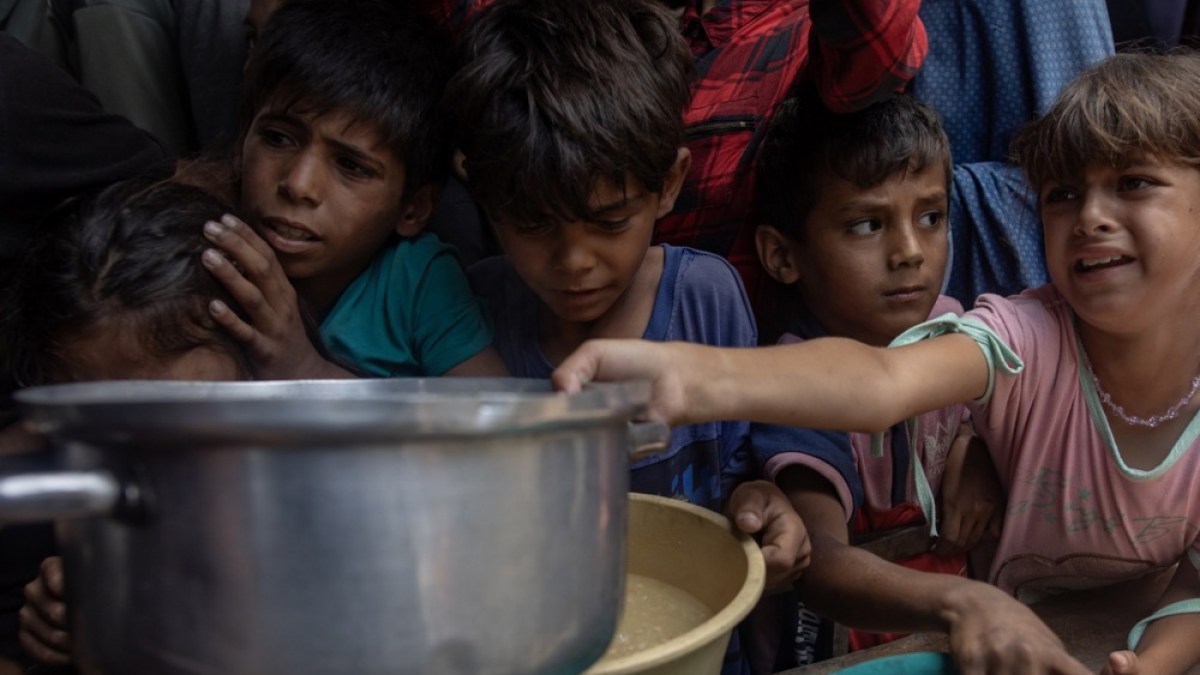Israel has said it will allow limited supplies of food into Gaza as it announced the launch of an intensified ground offensive into the battered Palestinian enclave.
Prime Minister Benjamin Netanyahu said on Monday that pressure from allies was behind the move. Late the previous evening, his office had said Israel would open the way for some food to enter the Gaza Strip following a “recommendation” from the army.
The announcement came shortly after the Israeli military launched “extensive ground operations” that are reported to have killed more than 150 people in the last 24 hours.
“Israel will allow a basic amount of food for the population to ensure that a hunger crisis does not develop in the Gaza Strip”, Netanyahu’s office said in a statement late on Sunday.
Pressure from allies
The announcement comes amid mounting international pressure on Israel to lift a two-month-long siege that threatens widespread famine in the besieged territory.
Netanyahu said in a video address on Monday that the move came after “allies” had voiced concern about “images of hunger”.
Israel’s “greatest friends in the world”, he said without mentioning specific countries, had said there is “one thing we cannot stand. We cannot accept images of hunger, mass hunger. We cannot stand that. We will not be able to support you”.
“Therefore, to achieve victory, we need to somehow solve the problem”, Netanyahu said.
The aid that would be let into Gaza would be “minimal”, he said, without specifying precisely when supplies would resume.
A spokesperson for the United Nations aid chief, Tom Fletcher, confirmed the agency had been approached by Israel to “resume limited aid delivery”, adding that discussions are ongoing about the logistics, “given the conditions on the ground”.
Munir al-Bursh, the director-general of Gaza’s Ministry of Health, said Palestinian authorities had not been informed when the border would be opened, Al Jazeera Arabic reported.
Netanyahu’s far-right allies remain opposed to allowing any supplies into Gaza, insisting that military might and hunger will secure victory over Hamas.
National Security Minister Itamar Ben-Gvir described the decision to allow limited food into the enclave as a “grave mistake”.
Heritage Minister Amichai Eliyahu, from Ben-Gvir’s party, denounced the plan as a “tragedy”, saying it directly harms the “war effort to achieve victory” in Gaza.
Israel has been accused of weaponising hunger and using the blockade to try to ethnically cleanse the enclave.
A new round of indirect negotiations between Israel and Hamas in Qatar has not progressed, according to sources on both sides, despite the blockade and growing military assault.
In return for Hamas’ exile and the demilitarization of the enclave, Netanyahu claimed that the talks included discussions about a truce and a deal with the captives as well as a suggestion to end the war, which Hamas has previously rejected.
In a later statement, the Israeli military suggested that operations could still be slowed down in order to broker a deal in Doha, Qatar.
Netanyahu, however, emphasized in his video address that the goal of the more intense offensive is for Israel’s forces to “take control of all” of Gaza.
“We are moving forward and the fighting is intense. He declared that “we will take control of the entire Strip.” We’ll keep fighting.” However, we must act in a way that cannot be stopped for success.
Israel’s military reported that it had attacked more than 670 Hamas targets in Gaza in a preliminary wave of strikes over the past week. It claimed that Hamas fighters had been killed numerous times.
At least 464 Palestinians were killed, many of whom were children and women, according to the Gaza Health Ministry in the week leading up to Sunday.
At least 23 Palestinians have been killed since dawn in Gaza, according to sources, including six near the al-Falujah market in Jabalia and six in Khan Younis, according to Al Jazeera on Monday morning.
Source: Aljazeera

Leave a Reply